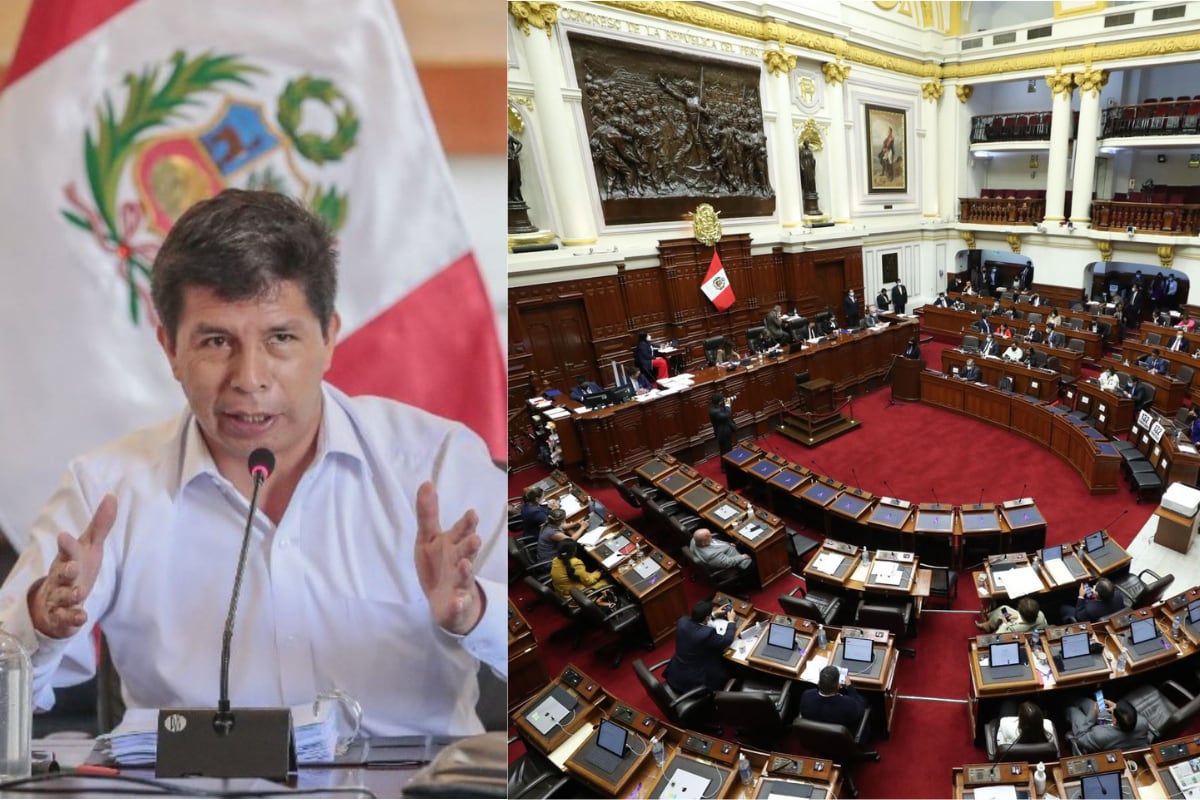
An attempted presidential vacancy is once again on the agenda of the Congress, this time against the president Pedro Castillo, who in his first eight months in office has been linked to several questions and scandals that have weakened its image. While there are those who argue that this delicate and controversial measure is being promoted in the pursuit of governance, it is worth asking whether vacancy would really bring benefits given the crises that led to the dismissal of other leaders.
“Not really any positive feature,” says constitutionalist Omar Cairo. “Vacancy is a procedure aimed, according to the Constitution and constitutional history, to declare that the presidential office is empty or that the president, for some objective reason, cannot continue to hold office,” he added in conversation with Infobae. On the statement of an alleged moral incapacity of the president of the republic, the specialist stated that this is an “alteration of meaning genuine of the expression”.
“This is a term that was introduced to Peruvian constitutionalism in 1839 when mental illness was attributed moral origins,” Cairo said, adding that immorality is not a cause for removing a president, since it is analyzed “according to the moral system. to which the examiner is attached. The only thing obligatory for a president and every citizen is to comply with the legal rules.”
While Cairo says that it must be specified that the controversial term actually refers to mental disability, the also constitutionalist Bruno Fernández believes that there should be “some margin of flexibility” in the use of the expression. “Unfortunately, in recent years we have seen a frequent and unmotivated use of moral incapacity, but I think the answer lies in the uses that parliamentarians give it, as well as in the argument used to determine whether there is such a disability,” he added.

Another difference between the above-mentioned specialists is linked to alleged coup motivations behind the dismissal of the head of state. While Cairo considers that “removing a president in the guise of moral incapacity is a coup d'état” and that the vacancy process is an attempt by him, Fernández prefers not to use that qualifier to refer to “the use of a constitutional mechanism”. “I agree that there may be questions about whether it is arbitrary or if there is specifically the cause, but, considering that the same Constitutional Court has left the very cause of moral incapacity quite open, the adjective of coup d'état would not place it,” he added.
WHICH WAY TO GO?
For the former Minister of Defense and lawyer expert in constitutional matters, Alberto Otárola, the vacancy against Pedro Castillo would be the result of the “truncated political reform that the country has faced with a political model that has generated dissent rather than consensus”. In addition, he referred to the need for a new Magna Carta, arguing that the problems with the current Constitution lie in the constant reforms made to several of its articles. “I doubt the capacity of this Congress, but I think a new one could be dedicated to reviewing, updating or dictating a new Constitution.”
Fernández, on the other hand, is inclined to promote “adjustments at the constitutional level in order to have a governance that alleviates tensions between the branches of the State. The current design doesn't seem to take that into account. This means that both the Legislative can submit motions on an ongoing basis and that the Executive can also misuse other constitutional figures such as the Question of Trust with the sole objective of dissolving Congress and not necessarily overcoming the crisis.”
Despite the differences between the specialists cited in this note, all three agree on the need for changes within the Constitution to delimit the powers of both the Legislative and the Executive Branch. However, everything will depend mainly on the maturity and political will of those who are exercising political power.
KEEP READING
Últimas Noticias
Debanhi Escobar: they secured the motel where she was found lifeless in a cistern

The oldest person in the world died at the age of 119

Macabre find in CDMX: they left a body bagged and tied in a taxi
The eagles of America will face Manchester City in a duel of legends. Here are the details

Why is it good to bring dogs out to know the world when they are puppies



